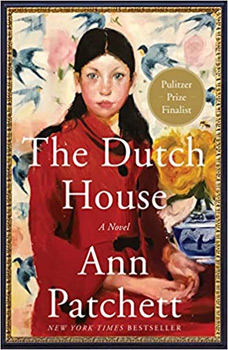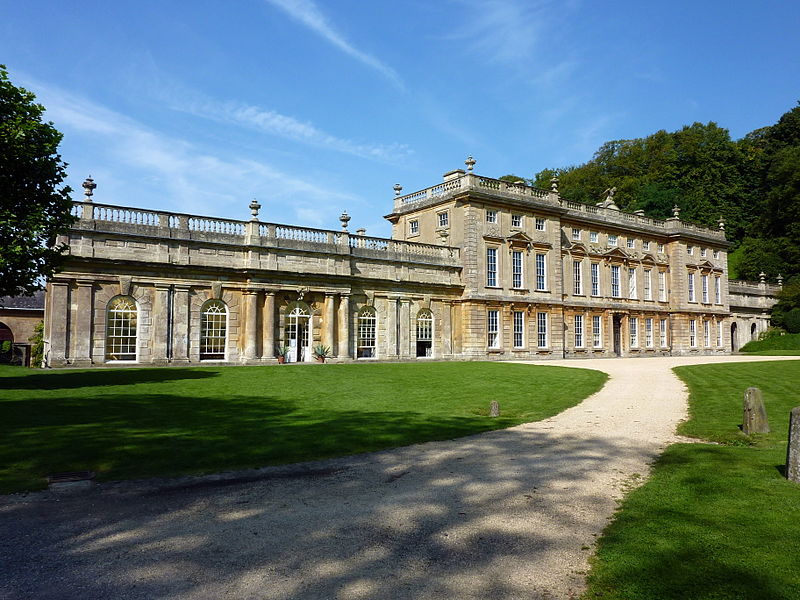Summary | Excerpt | Reading Guide | Reviews | Beyond the Book | Read-Alikes | Genres & Themes | Author Bio

This article relates to The Dutch House
 Having moved 17 times in the wake of my late father being transferred at his job, I don't have a nostalgic connection to anywhere I've lived. The connection many people feel in their bones, heart and soul to a specific home is a mere curiosity to me—an interest in what people remember, how they seek to describe it. I live vicariously through those words, trying to imagine what it must feel like to have those emotionally immersive memories.
Having moved 17 times in the wake of my late father being transferred at his job, I don't have a nostalgic connection to anywhere I've lived. The connection many people feel in their bones, heart and soul to a specific home is a mere curiosity to me—an interest in what people remember, how they seek to describe it. I live vicariously through those words, trying to imagine what it must feel like to have those emotionally immersive memories.
The Dutch House is not the first time I've sought this out in literature. The fictional landscape of language, in all its varied forms, offers up so many different houses and so many different lives lived in them, that it's fascinating to read about how some characters embrace where they have lived, while others might be repulsed because of what they've endured there.
There are some novels in which the house in question has so thoroughly permeated its inhabitants that you can't imagine it, or them, apart from each other. It's what makes, say, The Remains of the Day by Kazuo Ishiguro so effective, a characteristic shared by the movie adaptation. Ishiguro starts off the novel with Stevens the butler mulling over a trip through the English countryside to see about Mrs. Benn possibly returning to her position as the housekeeper of Darlington Hall. While Stevens is putting books away on a shelf in the library, his employer Mr. Faraday enters, and announces his own pending trip, suggesting that Stevens take some time off. You immediately get a sense of how long Stevens has been there, and the weight of the house on his psyche.
Just like the book, the movie begins in the present day, after the bulk of the events that make up the plot (which are seen in flashbacks) have already occurred. There's a very vivid sense not only of how many years Stevens has been the head butler of Darlington Hall, but how much he and the house have become a part of each other. For Stevens, there's a kind of emotional safety in running Darlington Hall; he keeps his feelings in check in service of making sure that everything is absolutely perfect for his employer and this grand house. By then the house has become his whole life. He's let the years go by in the guise of serving his employer, not even letting Miss Kenton (who becomes Mrs. Benn later on) know how he feels about her. That house is an easy place to hide his soul away. He never has to think about it, until he realizes in one stunning moment how much he has actually lost.
There are others houses like that, such as the plantation home Tara in Gone with the Wind, to which Scarlett O'Hara was profoundly devoted. But it's also interesting when an outsider is introduced to a house, and through it, a world they've never known. Nick Carraway in The Great Gatsby comes to mind. He gets to know his West Egg neighbor Jay Gatsby, a man whose mansion is a symbol of his enormous wealth. It's Nick's experiences that make this classic worthwhile as he responds to the extravagance he sees, and all the while he's simply trying to make a living, both attracted and repelled by who these rich people truly are.
Daphne du Maurier's Rebecca is perhaps the epitome of an outsider being introduced to a house they've never known. The house is Manderley, the outsider is the new wife of the widower Max de Winter, and boy oh boy does she have a lot to live through. Manderley is suffused with the presence of de Winter's first wife Rebecca in so many ways, and the imperious maid Mrs. Danvers is still fiercely devoted to her previous mistress. She absolutely loathes this outsider intruding on what she has always known, and vows to punish her. Rebecca is suffused with a gothic atmosphere that leaves the reader as uneasy as the new Mrs. de Winter, showing how significant a house can be in setting a novel's mood.
Dyrham Park, film location from Remains of the Day representing Darlington Hall
Filed under Cultural Curiosities
![]() This "beyond the book article" relates to The Dutch House. It originally ran in October 2019 and has been updated for the
January 2021 paperback edition.
Go to magazine.
This "beyond the book article" relates to The Dutch House. It originally ran in October 2019 and has been updated for the
January 2021 paperback edition.
Go to magazine.
Your guide toexceptional books
BookBrowse seeks out and recommends the best in contemporary fiction and nonfiction—books that not only engage and entertain but also deepen our understanding of ourselves and the world around us.